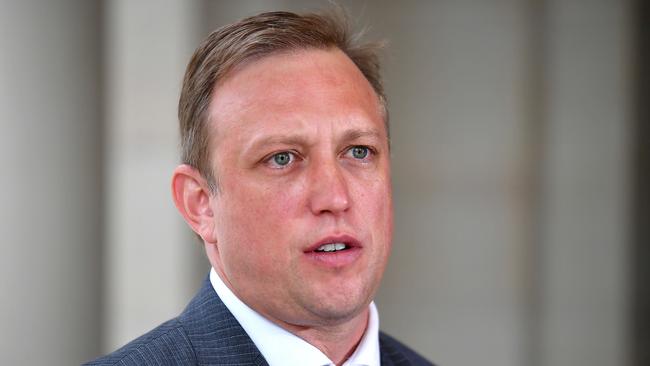Analysis: What Deputy Premier Steven Miles’ slandering of the judiciary is really about
The Deputy Premier’s explosive attack against the judiciary was inappropriate at its core, but focusing on the imagined “political fallout” only serves to distract, writes Madura McCormack.
Opinion
Don't miss out on the headlines from Opinion. Followed categories will be added to My News.
The explosive attack against the judiciary by Deputy Premier Steven Miles was inappropriate at its core, but focusing on the imagined “political fallout” only serves to distract from a much larger issue.
Mr Miles on Friday threw himself within a whisker of being in contempt of court when he accused Townsville Magistrate Viviana Keegan of pulling a media “stunt” when she released 13 alleged young offenders on a single day.
The legal community immediately, and rightfully, rebuked those comments, including as a “direct and egregious contempt of the court process”.
The focus since then has been on what Mr Miles’ cabinet colleagues think of what he said. Do they agree? Will they distance themselves?
In asking those questions a very handy scapegoat in the form of the judiciary emerged full formed.
It’s a helpful political strategy known as “deadcatting”, the act of throwing something on the table that causes alarm and disgust but is ultimately irrelevant because its main purpose was to distract from the issue that’s been causing political grief.

Premier Annastacia Palaszczuk arguably set up this play in late December when she was announcing the state government’s latest 10-point plan on tackling youth crime and declared the courts “need to do their job”.
Mr Miles scored the try.
And while he’ll be pilloried in legal circles, and used as an “example” of infighting within the Palaszczuk government, his standing in the court of public opinion will be unharmed.
Because bashing the judiciary is, and always has been, a popular pastime.
What Mr Miles did was at its core inappropriate, but his comments reflected the sentiment of the community back to them.
Whether this sentiment is seated in truth or not is largely irrelevant.
In the end asking questions about whether a politician’s colleagues think they went too far in attacking the judiciary is pointless.
Because none of it ultimately matters until we stop and reflect on harsher realities.
Such as why is it that we, as a community, have allowed ourselves to accept measures on youth crime that exist only to appease us emotionally instead of fighting for actions based on evidence and geared to effective long-term change.
Youth advocates and criminologists, including from Queensland’s Griffith University, have repeatedly pointed to evidence showing putting young people behind bars makes them worse.
And that the government needs to address the underlying issues of youth crime– such as poverty, youth homelessness and family violence – rather than symptoms.
The state government once thought this too, based on a December 2018 press release which stated “we can’t continue to keep doing the same things over and over and expect a different result”.
These days the go-to line for government ministers peppered with questions on what they’re doing to fix the problem is that youth crime is an “incredibly complex issue”.
If it’s so complex why keep reaching for the same grab bag of measures that never seem to work.



